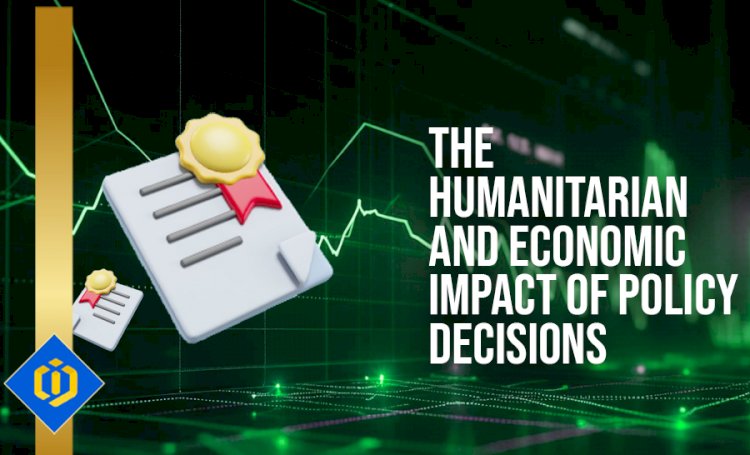Navigating the Ripple Effects: Analyzing the Humanitarian and Economic Consequences of Policy Decisions

Introduction:
This article provides a comprehensive review of specific foreign policy choices and military engagements by Western nations and Israel, analyzing their human and economic implications in light of international legal frameworks and human rights conventions.
Analyzing Key Events and Implications:
Vietnam War (U.S. Engagement, 1965-1973)
The Vietnam War serves as a case study for assessing the impact of policy decisions on a nation's human and economic landscape. Discussions revolve around potential breaches of international protocols, notably regarding the use of Agent Orange and the My Lai incident. Civilian casualties exceeded millions, resulting in a devastating human toll. The economic repercussions were significant, particularly in Vietnam's agriculture sector, which faced substantial challenges.
Iraqi Engagement (2003-2011)
The military engagement in Iraq, initiated without a UN directive, sparked discourse on its international legitimacy. The human consequences were profound, with significant civilian casualties reported. Economically, the direct military expenditure and Iraq's subsequent economic downturn post-conflict had far-reaching effects, impacting both the nation and the wider region.
Post-9/11 Detainment Practices
The article highlights the legal overview of post-9/11 detainment practices, particularly focusing on Guantanamo Bay detentions and alleged inhumane treatment. These practices challenged established international human rights principles and raised concerns regarding the undisclosed number of detainees affected. From an economic perspective, the costs associated with maintaining detention facilities and potential compensations added to the overall impact.
NATO's Yugoslavian Campaign (1999)
The legality of NATO's Yugoslavian campaign, bypassing the UN Security Council, raised concerns. The human consequences were evident in civilian casualties, albeit with varying estimates. Economically, the campaign dealt a direct blow to Yugoslavia's infrastructure, exacerbating the country's economic challenges.
Backing of Authoritarian Regimes by Western Powers
The article examines the support provided by Western powers to authoritarian regimes, highlighting the legal and human consequences of such alliances. The local populations often faced repressive measures, impacting their human rights. Economically, the socio-political instability resulting from these alliances hindered economic prosperity and deterred foreign investments.
Afghanistan Operations (2001-2021)
This section reviews the legal overview and human consequences of the prolonged engagement in Afghanistan, including concerns about the treatment of detainees. The human toll was significant, with tens of thousands of civilian casualties reported. Economically, the prolonged conflict drained resources and left Afghanistan economically vulnerable.
France's African Engagements
The article explores France's active military role in ex-colonies, examining the legal implications and human consequences of its actions. Ongoing conflicts in these regions have led to loss of lives, while the economic repercussions have hindered stable economic progression.
UK's Involvement in Yemen
This section focuses on the legal overview of the UK's provision of arms to Saudi Arabia in the Yemen conflict, raising concerns related to humanitarian law. The human consequences are evident in the widespread civilian suffering in Yemen, which has resulted in a severe humanitarian crisis. Economically, the crises impede economic development in the region.
Israeli-Palestinian Interactions
The article assesses Israel's settlements activities and military operations in the context of international law. The human consequences of the longstanding conflict between Israel and Palestine have been significant, with numerous lives lost. From an economic standpoint, ongoing tensions have perpetuated economic challenges, particularly in the Palestinian territories.
Conclusion:
The examination of these events underscores the profound human and economic costs of global geopolitical strategies. It emphasizes the importance of continually assessing and rectifying policy decisions in light of their broader implications, placing humanity at the forefront to ensure a harmonious coexistence and a better future for all.
Author: Pooyan Ghamari, Swiss Economist & Visionary

 content-team
content-team 






















